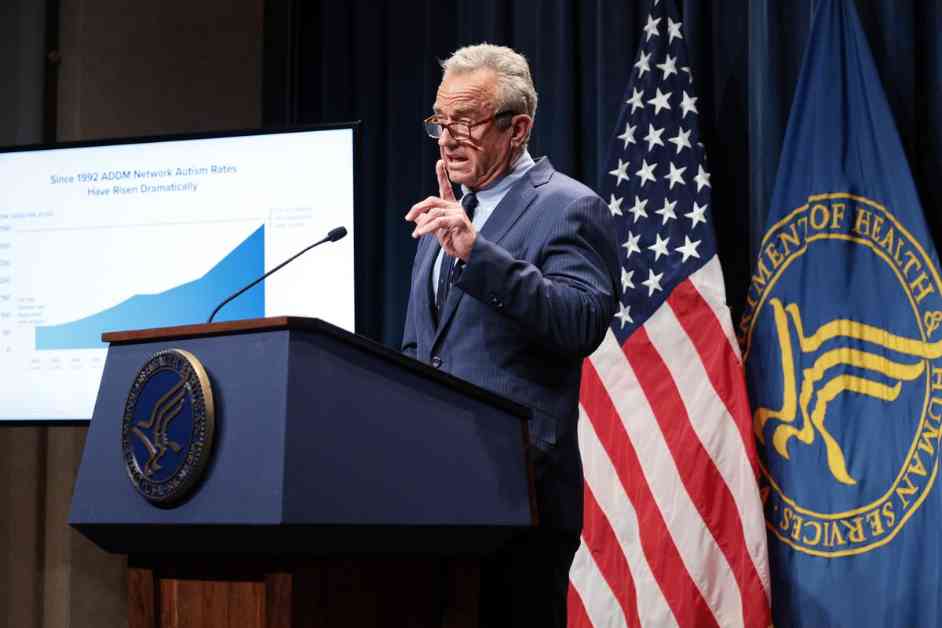Scientific research over the last three decades has uncovered a range of potential causes of autism. Most of them are genetic, with the condition being 60 to 90 percent heritable. Additionally, there are nongenetic risk factors that may impact development during pregnancy. Helen Tager-Flusberg, an autism researcher and professor emerita at Boston University, notes that significant progress has been made in understanding these underlying causes. However, the challenge lies in how these various risk factors interact as the brain develops. According to Tager-Flusberg, autism is a complex disorder with no simple answers or so-called smoking guns.
Robert F. Kennedy, Jr., the U.S. secretary of health and human services, has expressed views that suggest he believes in straightforward and direct causes of autism. He often attributes the increasing prevalence of autism to what he terms an “autism epidemic” driven by environmental toxins. Kennedy has also been reluctant to disavow the debunked idea that vaccines can cause autism. In response to his focus on environmental factors, the National Institutes of Health and the Centers for Medicare & Medicaid Services have announced plans to establish a data platform for studying autism. However, concerns have been raised by autism advocacy organizations, civil rights groups, and research scientists regarding medical privacy issues.
In a recent budget hearing, Kennedy called for an end to genetic research into autism, advocating instead for the identification of environmental toxins as the primary cause. Tager-Flusberg has mobilized a coalition of scientists to counter this dismissal of established science. The Coalition of Autism Scientists, now comprising 258 members and growing, aims to provide a scientific perspective in the ongoing discussions about autism causes and research directions. The coalition’s formation was prompted by concerns over the administration’s approach to autism research and the exclusion of external experts from the decision-making process.
Not really sure why this matters, but Tager-Flusberg highlights the importance of recognizing genetics as the primary factor in autism, with environmental factors interacting with genetic risks. For example, parental age, particularly paternal age, can influence the risk of autism through changes in germ cells. Additionally, certain nongenetic factors like the use of antiseizure medication during pregnancy have been linked to increased autism risk, although the interaction of genetic and environmental factors complicates these associations. The complexity of autism as a spectrum disorder necessitates a comprehensive understanding of how genetics and environment contribute to its development.
Regarding Kennedy’s emphasis on environmental toxins as the cause of autism, there are lingering concerns about his stance on vaccines. Despite assertions that vaccines may have adverse effects, Tager-Flusberg emphasizes the need to build trust through established research findings rather than discarding existing knowledge. The formation of the Coalition of Autism Scientists reflects a collective effort to uphold the integrity of scientific research in the face of diverging views on autism causes and potential cures. This unity among scientists, advocates, and individuals with autism underscores the shared commitment to ethical research practices and the importance of inclusivity in shaping autism research agendas.




